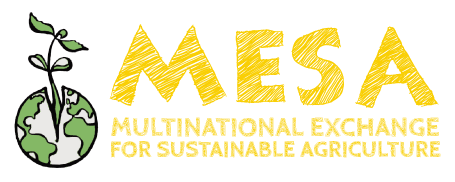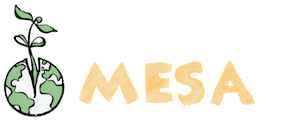<- Return to Listings | Copy | |
Host Training Plan
Slide Ranch
| Name | Slide Ranch | [email protected] | |
| Steward(s) Selected | Mahiler Mirco – | ||
| Training Start Date | 05/01/2023 | Training End Date | 11/30/2023 |
| Steward Training Hours per Week | 32-40 | ||
| Compensation (Stipend or Wage) | Regular SAGE Stipend – $700/mo. (MESA sends to Steward via our monthly Host fee) | If Yes, how much/how often? | [1156] |
| Non-Monetary Compensation and Estimated Value | 14,000 (est. food, housing, program fees, local travel, insurance) |
| Name of your Workers’ Compensation Carrier | 501(c) Agencies Trust |
| Will your Workers’ Compensation policy cover the Steward? | Yes |
| Number of Employees at training location | 15 |
| Number of Interns/Trainees/Apprentices at training location | 8 year-long, plus additional during summer months |
| Annual Revenue | $0 to $3 Million |
[Phase 1]
| Phase Name | Initial Training | ||
| Start Date of Phase | 05/01/2023 | End Date of Phase | 05/31/2023 |
| Primary Supervisor during this phase | Christine Nesbit | Supervisor Title | Program Director |
| [email protected] | Phone Number | 4153816155 | |
| 1. Describe the Trainee/Steward’s role for this phase |
|
Our Trainee will receive orientation in the residential systems, farm work, and an introduction to our organization, educational program formats and pedagogy, as well as becoming familiar with the Golden Gate National Recreation Area and this bioregion. |
| 2. Specific goals and objectives for this phase |
|
The trainee will be prepared to conduct him/herself as a steward of the land and facilitator of our programs and will have starting proficiency in a range of areas including: animal, garden and facilities systems, introduction to facilitating experiential learning and our thematic curriculum, background knowledge and ability to lead children on trails and at tidepools. |
| 3. Primary Supervisor’s qualifications |
|
Christine Nesbit, the Program Director, has a Master’s of Environmental Science degree with over 20 years experience in environmental education and non-profit management. |
| 4. What plans are in place for the Trainee/Steward to participate in cultural activities while in the United States? |
|
Trainee will facilitate and participate in Slide Ranch Family Farm Days, which celebrate the changing seasons as events on the farm (Halloween, Harvest, Spring Fling, Sheep Shearing, etc.). Trainee will also have opportunities to interact and form relationships with peers, trainee alumni and other local leaders in the field through trainings, Development Days, an alumni reunion, e.g. |
| 5. Specific knowledge, skills, or techniques to be learned during this phase? |
|
Trainee will learn the conceptual foundations of the approach that we use in our organic garden including composting, crop rotation and intercropping. He/she will be trained in the basics of animal husbandry including how to carry out the basic farm chores to tend sheep, goats, chickens and ducks including feeding, watering, egg collection and egg washing. Trainee will also be trained on detecting signs of labor in our goats. In training as a teacher, s/he will learn the basics of child development, positive discipline, how to structure a single activity and a full day or overnight thematic program, including the logistics of schedule-making. Trainee will receive an introduction to native plants and animals, including the major tidepool organisms. |
| 6. How specifically will this knowledge, skills, or techniques be taught? Include methodology of training and chronology/syllabus. |
|
This phase aims to layer content in a logical sequence, beginning with the most fundamental essentials of residential systems, orientation to the farm, and finally the details of how we facilitate our educational programs. This rich and varied content will be taught in 2-3 hour workshops, led primarily by the Program Director, Animal Care Manager and Garden Manager, as well as by specially-contracted, expert, outside trainers. The training will include the use of an extensive Training Manual as a resource provided to each trainee, which includes detailed standards, curriculum write-ups, background information about farm animals, the garden, the tidepools, etc. Workshops will include a combination of seminar and project-based activities. Trainee will have the opportunity to observe staff and former trainees teaching a program, to gain a fuller understanding of how these skills are applied in action. |
| 7. How will the Trainee/Steward’s acquisition of new skills and competencies be measured? |
|
The trainee will be observed by the Animal and Garden Managers in daily chores and have opportunities for 1:1 check-ins and feedback in these areas. Trainee will also be observed by the Program Director and informally evaluated based on their participation during trainings, including debrief discussions.Trainee will complete a training evaluation that gives feedback to the Program Director, including the trainee’s self-assessment. |
| 8. Additional Phase Remarks (optional) |
[Phase 2]
| Phase Name | Summer program session | ||
| Start Date of Phase | 05/31/2023 | End Date of Phase | 08/31/2023 |
| Primary Supervisor during this phase | Christine Nesbit | Supervisor Title | Program Director |
| [email protected] | Phone Number | 4153816155 | |
| 1. Describe the Trainee/Steward’s role for this phase |
|
During the summer season Slide Ranch’s program focus is channeled into 10 weeks of day camp. The trainee will have the opportunity to lead a different group of campers each week. |
| 2. Specific goals and objectives for this phase |
|
While many of the programmatic areas are consistent from spring to summer, the extended week-long format offers many opportunities for creativity and experimentation with more in-depth, multi-day projects, greater team building, etc. |
| 3. Primary Supervisor’s qualifications |
|
Christine Nesbit, the Program Director, has a Master’s of Environmental Science degree with over 20 years experience in environmental education and non-profit management. |
| 4. What plans are in place for the Trainee/Steward to participate in cultural activities while in the United States? |
|
Trainee will facilitate and participate in Slide Ranch Family Farm Days, which celebrate the changing seasons as events on the farm (Halloween, Harvest, Spring Fling, Sheep Shearing, etc.). Trainee will also have opportunities to interact and form relationships with peers, trainee alumni and other local leaders in the field through trainings, Development Days, an alumni reunion, e.g. |
| 5. Specific knowledge, skills, or techniques to be learned during this phase? |
|
The trainee will learn how to design a program schedule that spans 5 days, incorporating team building, goat milking, chickens and ducks, cooking, garden projects, hiking, and crafts. He will also have the opportunity to develop group dynamics and conflict resolution skills, as well as parent interactions. |
| 6. How specifically will this knowledge, skills, or techniques be taught? Include methodology of training and chronology/syllabus. |
|
This phase begins with one solid week of training to prepare trainees for the transition to the summer camp program format. As in the initial three-week training, there will be a variety of 2-3 hour workshops led by the Program, Garden and Animal Managers. Some of these topics include camp themes, multi-day projects, “Investigations,” camp-wide activities, group management, inclusion, conflict resolution, team building, cooking and gardening projects, animal and ranch stewardship projects, and safety. |
| 7. How will the Trainee/Steward’s acquisition of new skills and competencies be measured? |
|
The trainee’s farm work will be reviewed by the Animal and Garden Managers, and discussed in 1:1 check-in’s. The Program Director will conduct a formal teaching observation and provide a detailed write-up using a rubric based on teaching standards introduced during the initial training. This feedback will be offered during a 1:1 meeting with the Program Director and trainee. |
| 8. Additional Phase Remarks (optional) |
[Phase 3]
| Phase Name | Fall Program Season | ||
| Start Date of Phase | 08/31/2023 | End Date of Phase | 11/30/2023 |
| Primary Supervisor during this phase | Christine Nesbit | Supervisor Title | Program Director |
| [email protected] | Phone Number | 4153816155 | |
| 1. Describe the Trainee/Steward’s role for this phase |
|
During the final season, the trainee applies all of his training and experience to leading school and community group and family programs. |
| 2. Specific goals and objectives for this phase |
|
The goals for the trainee are to demonstrate a degree of mastery in the teacher and lead teacher roles, as well as in carrying out farm activities. |
| 3. Primary Supervisor’s qualifications |
|
Christine Nesbit, the Program Director, has a Master’s of Environmental Science degree with over 20 years experience in environmental education and non-profit management. |
| 4. What plans are in place for the Trainee/Steward to participate in cultural activities while in the United States? |
|
Trainee will facilitate and participate in Slide Ranch Family Farm Days, which celebrate the changing seasons as events on the farm (Halloween, Harvest, Spring Fling, Sheep Shearing, etc.). Trainee will also have opportunities to interact and form relationships with peers, trainee alumni and other local leaders in the field through trainings, Development Days, an alumni reunion, e.g. |
| 5. Specific knowledge, skills, or techniques to be learned during this phase? |
|
The trainee will learn about goat and sheep breeding, turkey slaughter, cover cropping and seed saving. |
| 6. How specifically will this knowledge, skills, or techniques be taught? Include methodology of training and chronology/syllabus. |
|
Supervision by Program Director as well as mentorship by Garden and Animal Care managers will continue, including observation and 1:1 check-ins. Afternoon sessions will also continue, as ongoing forums for skill-building, debriefing, projects and professional development. |
| 7. How will the Trainee/Steward’s acquisition of new skills and competencies be measured? |
|
The trainee’s farm activities will be reviewed by the Animal and Garden Managers, and discussed in 1:1 check-in’s. The Program Manager will conduct a formal teaching observation and provide a detailed write-up using a rubric based on teaching standards introduced during the initial training. This feedback will be offered during a 1:1 meeting with the Program Director and trainee. |
| 8. Additional Phase Remarks (optional) |

